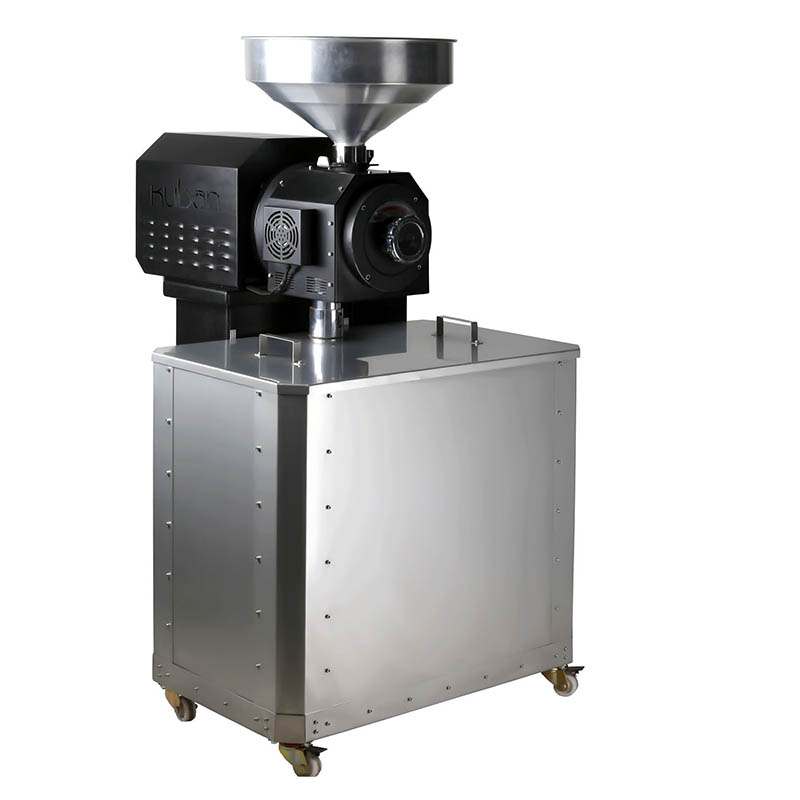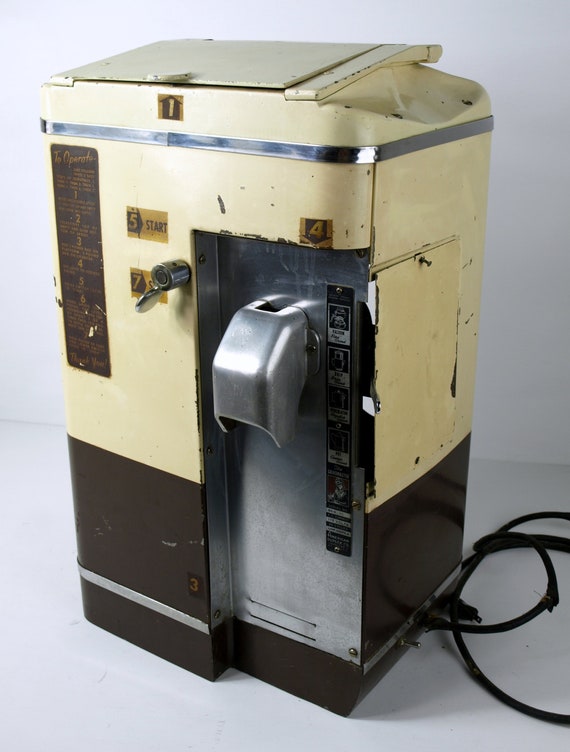Industrial Coffee Mill Guide: Boost Performance and Top Quality
In the affordable landscape of coffee manufacturing, picking the ideal commercial coffee grinder plays a pivotal role in enhancing both effectiveness and product high quality. Comprehending the nuances of different mill types and crucial functions-- such as customizable grind setups and durable building-- can substantially influence the final taste account of the coffee. Additionally, the optimization of the grinding process, combined with attentive maintenance, is necessary for sustaining efficiency over time. As we check out these essential components, it becomes apparent that the ramifications expand past simple tools choice, affecting general organization success in manner ins which call for closer assessment.
Comprehending Grinder Kinds
When picking a commercial coffee mill, understanding the numerous kinds readily available is important for enhancing both taste extraction and operational efficiency. The 2 primary sorts of grinders are blade grinders and burr grinders. Blade mills make use of sharp blades that slice coffee beans into irregular sizes, bring about irregular extraction and potentially unwanted flavors. While blade mills are often more ideal and budget friendly for small operations, they are generally not advised for industrial usage.

Eventually, picking the right kind of mill is important to maintaining high quality and performance in coffee production, making it important for organizations to invest in top quality burr mills for optimum results.
Trick Features to Take Into Consideration
Selecting a commercial coffee mill requires cautious factor to consider of a number of key functions that can significantly influence both performance and the total coffee experience. Among the primary elements to review is the grinding system. Burr mills are generally chosen over blade grinders, as they supply a consistent work dimension, which is essential for ideal removal and taste.
Another important feature is the grinder's capacity. A versatile grinder with multiple settings allows you to customize the work size to different brewing methods, enhancing the coffee's taste account.
Assess the grinder's sound degree, especially in a busy coffee shop or manufacturing environment, where too much sound can be turbulent. Spending in a grinder that balances these functions can considerably enhance both functional performance and the quality of the coffee served.
Optimizing Grinding Process
To achieve the ideal results in coffee prep work, maximizing the grinding process is essential. The grind size dramatically affects extraction, taste, and total high this content quality of the brewed coffee.


Additionally, keeping an eye on the grinding speed can enhance the process. Slower grinding usually generates less warmth, maintaining delicate flavors and aromas. Conversely, faster grinding might generate extreme warmth, adversely impacting the coffee's top quality.
Upkeep and Treatment Tips
Correct maintenance and care of commercial coffee mills are essential for making certain optimal efficiency and longevity. Regular cleansing is the foundation of upkeep; deposit build-up can affect flavor and grinding efficiency. It is a good idea to clean up the grinder after each usage, wiping down the outside and removing any type of coffee grounds from the burrs.
Furthermore, check the grinding burrs for wear and tear. Boring burrs can jeopardize work uniformity, so they ought to be changed as required. Industrial Coffee Grinder. Occasionally calibrating the mill is also crucial, as this keeps the wanted work dimension for various developing techniques
Lubrication of relocating parts should be carried out according to the manufacturer's specifications, as this lowers friction and prolongs the life of the equipment. It is necessary to use food-grade lubricating substances to guarantee safety and conformity with health regulations.
Finally, maintain the mill in a dry and stable atmosphere to avoid corrosion and rust. By sticking to these maintenance and treatment pointers, operators can boost the effectiveness of their commercial coffee grinders while making certain high-grade outcome and extended operational life.
Return on Investment Evaluation
Evaluating the return on investment (ROI) for commercial coffee mills is essential for organizations seeking to enhance their coffee manufacturing capacities. A complete ROI evaluation assists determine the financial feasibility of buying high-grade mills, permitting businesses to Recommended Reading weigh the preliminary expenses against prospective gains.
To carry out a thorough ROI evaluation, businesses should consider several vital elements. Evaluate the purchase price of the grinder, consisting of installment and any kind of needed alterations to existing infrastructure. Next off, determine operational expenses, consisting of power usage, maintenance expenses, and labor performance renovations. this link High-performance mills usually bring about minimized grinding time and boosted throughput, which can substantially improve performance.
In addition, consider the effect on item high quality. Industrial Coffee Grinder. Superior mills produce a more constant work dimension, which can boost flavor profiles and client complete satisfaction, ultimately driving sales. By boosting the quality of the last product, companies can warrant higher pricing, leading to boosted revenue
Final Thought
In summary, an industrial coffee grinder plays a crucial role in improving both efficiency and product top quality within coffee manufacturing. By selecting top notch burr mills furnished with essential attributes such as flexible work setups and resilient building and construction, companies can make certain optimal taste removal. Furthermore, routine upkeep is essential for maintaining mill efficiency and optimizing consumer contentment. Ultimately, the tactical investment in a trusted mill contributes substantially to enhanced earnings and competition in the coffee sector.
In the competitive landscape of coffee manufacturing, selecting the ideal commercial coffee grinder plays a critical role in improving both efficiency and product top quality. The 2 main types of grinders are blade mills and burr mills. Within the burr grinder category, there are level burr mills and cone-shaped burr grinders, each with its benefits. Burr mills are typically preferred over blade mills, as they give a constant grind size, which is crucial for optimum extraction and flavor.
In summary, an industrial coffee mill plays an essential role in boosting both effectiveness and product top quality within coffee production.